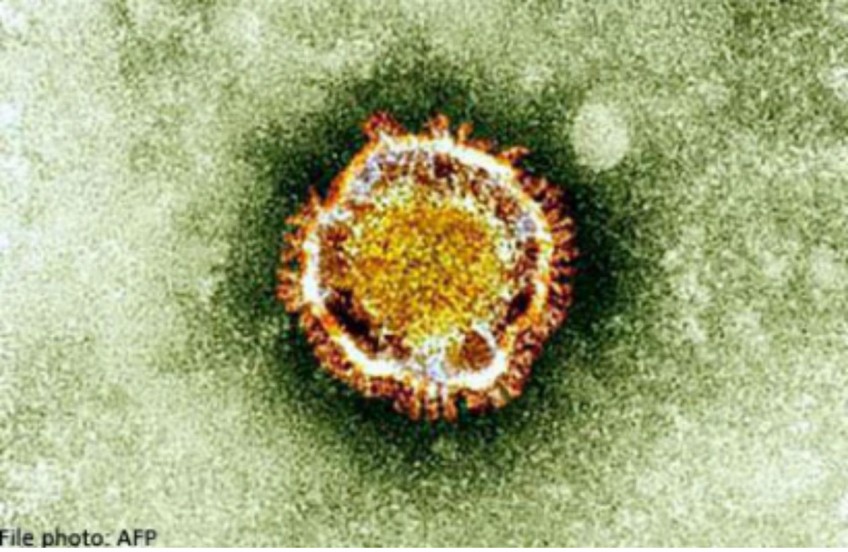Malaysian dies from Mid-East respiratory virus


KUALA LUMPUR - A Malaysian has died from complications caused by the Middle East Respiratory Syndrome- Coronavirus (Mers-CoV) after returning from Saudi Arabia, in what appears to be the first fatal case of the disease in South-east Asia.
The Ministry of Health said yesterday that a 54-year-old man from Batu Pahat in Johor had visited Mecca to perform the umrah, a Muslim pilgrimage trip, and returned to Malaysia on March 29.
He developed fever, cough and breathing difficulties on April 8, and was admitted to Hospital Sultanah Nora Ismail in Batu Pahat last Thursday for three days. He succumbed to complications caused by the virus on Sunday.
Health Minister S. Subramaniam has urged passengers who took the same flights as the victim to contact the ministry for a health screening.
The victim took Turkish Airlines flights TK93 and TK60 on the Jeddah-Istanbul-Kuala Lumpur route on March 29.
"The Health Ministry is conducting disease prevention and control measures, including monitoring those who have come into contact with the case," the minister said in a statement yesterday.
He added that the people being monitored currently include health workers who have handled the infected case.
The World Health Organisation (WHO) said the Mers-CoV, first identified in the Middle East in 2012, had not been previously detected in humans and little is known about the transmission of the virus.
The WHO said the virus is believed to be of animal origin but, so far, it has yet to be identified in any animal species. Symptoms of infections include fever, cough, shortness of breath and diarrhoea.
The WHO has so far recorded 238 cases, including 92 deaths.
These cases were recorded in several Middle East countries including Qatar and Oman. Despite that, it did not recommend travel restrictions to these countries.
Last week, the United Arab Emirates (UAE) reported 10 cases of the Mers-CoV infection among health-care workers who were identified through screenings following contact with an infected person in Abu Dhabi, the UAE's capital city.
This person died last Thursday, but all 10 workers were reported to be in stable condition.
A Filipino health worker in the UAE who yesterday returned to the Philippines tested positive for Mers-CoV, according to health officials.
He had reported his condition to the Philippine authorities and is reported to be in isolation with his family, media reports said.
Another Filipino health worker had died of the disease in Al Ain in the UAE last Thursday.
Hospitals here on lookout for cases, some patients being tested
Hospitals in Singapore are on the alert for any cases of the Middle East Respiratory Syndrome Coronavirus (Mers-CoV) following Malaysia's first confirmed victim of this infectious disease.
A Ministry of Health (MOH) statement last night said it is "closely monitoring this latest development and is in close contact with our (Malaysian) counterparts".
It added that while Singapore has not seen any Mers-CoV cases here, "given today's globalised travel patterns, the possibility of an imported case here cannot be ruled out".
Local hospitals are testing all patients with severe respiratory illness and who have been to the Middle East recently.
While it noted the risk of an outbreak of Mers-CoV here is low since the virus is not known to pass from person to person in a sustained manner, the ministry nevertheless said: "All suspected and confirmed cases will be isolated and managed under strict airborne infection control precautions.
"If a case is detected, MOH will conduct contact tracing when appropriate, and all close contacts will be placed under quarantine."
It also has health advisories at the airport for travellers arriving from or going to countries which have Mers-CoV cases.
The Islamic Religious Council of Singapore is working with travel agents to ensure the advisory is given to umrah and haj pilgrims.
There is no travel advisory against going to such places, but travellers should vaccinate themselves against influenza and meningitis, it advised. Older people and those with chronic medical conditions should also vaccinate themselves against pneumococcal infections.
yyennie@sph.com.sg
salma@sph.com.sg
This article was published on April 17 in The Straits Times.

Get a copy of The Straits Times or go to straitstimes.com for more stories.